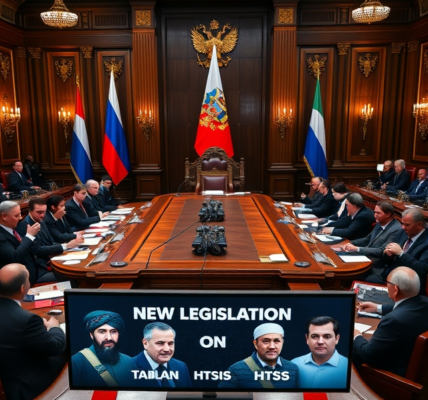Syria’s New Dawn: Rebel Leader Vows Justice for Torture Victims as Assad Era Ends
Abu Mohammed al-Jolani, also known as Ahmed al-Sharaa, the Syrian rebel leader who spearheaded the offensive that ended Bashar al-Assad’s regime, has pledged to bring to justice senior officials responsible for torture and abuses under the ousted government.
Sharaa met outgoing Prime Minister Mohammed al-Jalali to facilitate a peaceful transition of power and ensure uninterrupted services for the Syrian people, according to a statement shared on the rebels’ Telegram channels. The statement also declared that the new government “will not hesitate to hold accountable criminals, murderers, and security officers involved in the torture of the Syrian people.”
Decade-Long Struggle Culminates in Regime Change
The Syrian uprising against Assad began in 2011 but faced brutal repression, with approximately half a million lives lost and millions displaced. With steadfast support from Russia and Iran, Assad managed to hold off rebel advances for over a decade. However, as his allies became embroiled in conflicts in Ukraine and Gaza, Assad’s defenses weakened. Seizing the opportunity, rebel forces marched into Damascus, forcing Assad to flee and bringing an end to the Assad family’s five-decade grip on power.
The regime’s collapse has brought hope to thousands of political detainees and their families. Prisons like the infamous Saydnaya, dubbed a “human slaughterhouse,” became symbols of Assad’s brutality. Over 100,000 prisoners are believed to have died in custody during his rule, including more than 30,000 in Saydnaya alone, according to human rights reports. Families are now searching for missing loved ones, with many gathering near Saydnaya prison.
Aida Taha, 65, searching for her brother detained since 2012, described the harrowing experience: “I ran like crazy, but found out some prisoners were still locked in underground basements.”
Signs of a Nation Reborn
With Assad gone, Damascus streets are filled with former detainees bearing visible scars of torture and malnutrition. For many, the regime change represents liberation. Rim Ramadan, a 49-year-old civil servant, expressed relief: “We are reborn. For 55 years, we were too scared to speak—even at home. It feels like a nightmare has ended.”
Syria’s parliament and the formerly pro-Assad Baath Party have expressed support for a transitional government focused on rebuilding a unified Syria grounded in justice and law. Hayat Tahrir al-Sham (HTS), which led the rebel coalition, has sought to distance itself from its earlier associations with Al-Qaeda as it takes center stage in shaping Syria’s future.
International Responses and Challenges Ahead
The international community has shown cautious optimism. Germany and France have expressed willingness to cooperate with the new government if it upholds human rights and protects minorities. The UK has called on HTS to reject “terrorism and violence” before considering engagement. Meanwhile, the US remains focused on preventing Syria from becoming a haven for extremism.
US Secretary of State Antony Blinken emphasized the importance of avoiding Syria’s fragmentation and preventing mass migrations and the resurgence of terrorism. The UN has also called for accountability for the atrocities committed under Assad’s rule.
While Assad is rumored to have fled to Russia, the Kremlin has not confirmed his presence. For Syria, the end of the Assad era signals a turning point, but rebuilding a nation fractured by decades of oppression and war remains an immense challenge.


